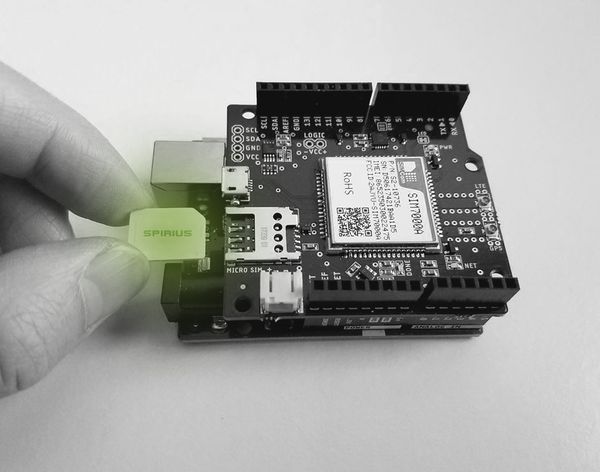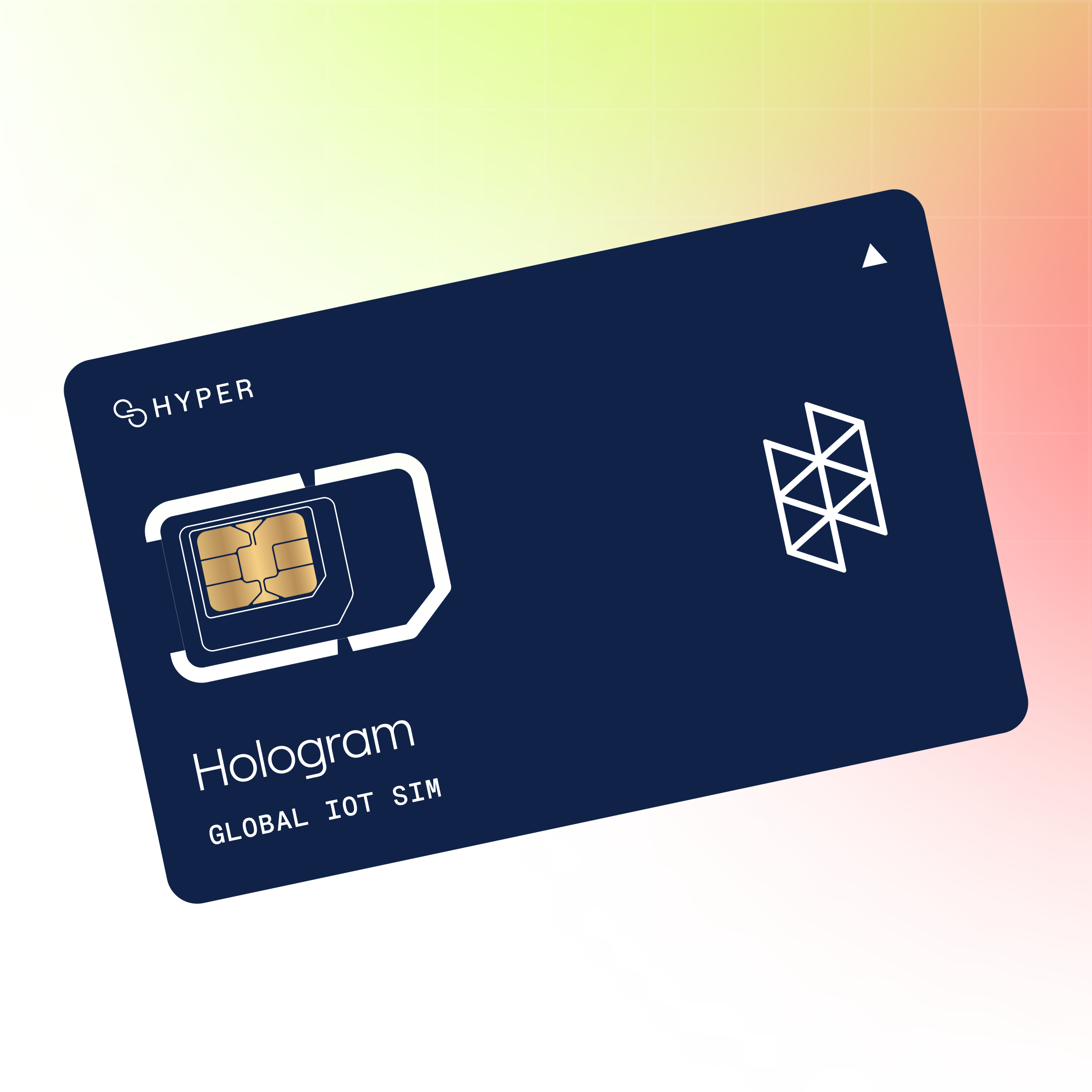Vodafone Iot Sim Card Marketplace
Vodafone Iot Sim Card Marketplace
Blog Article
Iot Sim Card India IoT SIM card Knowledge Base
The position of SIM cards in IoT connectivity is becoming more and more vital because the world advances in the direction of a extra interconnected landscape. IoT, or the Internet of Things, refers to the vast community of devices that communicate with each other and trade information to enhance performance and efficiency. In this ecosystem, SIM cards function a very important part, facilitating wi-fi communication between gadgets.
SIM cards provide the necessary identification that permits IoT units to connect with cellular networks. The distinctive identification numbers programmed into these SIM playing cards enable gadgets to authenticate their connections with service providers. This is crucial because it helps prevent unauthorized access and ensures that information transfers occur securely.
Iot Sim copyright International IoT M2M SIM Card
Different kinds of SIM playing cards are available for IoT purposes. Traditional SIM playing cards, embedded SIMs (eSIM), and removable SIMs all serve totally different wants within the IoT space. Traditional SIM cards could be inserted into gadgets needing connectivity, while eSIMs are embedded immediately into gadgets and are extra adaptable to changes in service providers. The versatility of eSIM know-how performs a major position in numerous IoT applications.
IoT units are available various sizes and shapes, from smart residence home equipment to industrial equipment. Each type of device might have totally different connectivity wants relying on its function. SIM cards can provide varied data plans tailor-made for specific use cases, optimizing communication based mostly on bandwidth necessities, information utilization, and different components. This flexibility is instrumental in enhancing the overall efficiency of an IoT ecosystem.
Iot Sim Card South Africa SIM Cards for IoT
Another facet of the SIM card's function in IoT connectivity is the ability to track and manage gadgets remotely. Mobile network operators supply platforms that allow customers to monitor their IoT devices in real-time. This capability is particularly vital in industries similar to logistics and transportation, the place figuring out the precise location of property can lead to better operational efficiency and price savings.
As IoT gadgets proliferate, managing connectivity turns into more complex. Here, the role of SIM cards extends to enabling centralized management solutions that help administer multiple devices simultaneously. This is particularly advantageous for enterprises operating massive fleets of linked devices, which can track performance and connectivity more effectively by way of a single administration interface.
Iot Data Sim Card IoT SIM Cards Explained Understanding Differences
A primary concern in the Internet of Things is security. With hundreds of thousands of units related to the internet, making certain the integrity and confidentiality of knowledge is paramount. SIM cards contribute to this security architecture by providing encryption capabilities that safeguard sensitive information. The cryptographic keys embedded within SIM cards help secure communications between devices, making it difficult for unauthorized entities to intercept or manipulate data exchanges.
Moreover, the role of SIM cards is evolving as expertise develops. The introduction of Narrowband IoT (NB-IoT) and Long Range Wide Area Networks (LoRaWAN) has opened new avenues for connectivity, significantly for low-power and long-range functions. SIM playing cards designed for these particular technologies enable units to operate effectively over lengthy distances whereas consuming minimal energy. This is particularly relevant for remote monitoring and management methods, where replacing batteries may be expensive and difficult.
While SIM playing cards have made strides in enhancing IoT connectivity, in addition they face challenges. For occasion, compatibility points arise when integrating numerous devices throughout completely different networks. The introduction of standards and laws aimed toward harmonizing IoT services is an ongoing effort, but the tempo of innovation usually outstrips these measures. Iot Sim Card Guide. Adapting SIM cards to fulfill diverse necessities is essential for making certain a seamless experience in the burgeoning IoT landscape.
Sim Card Iot Devices IoT SIM Cards Explained Connectivity

The impact of 5G expertise can be reshaping how SIM cards perform within IoT connectivity. With considerably improved speeds and reduced latency, 5G provides capabilities that redefine IoT purposes, starting from smart cities to autonomous vehicles. SIM cards designed specifically for 5G networks might be crucial in leveraging the full potential of those next-generation capabilities.
In various sectors, together with agriculture, healthcare, and smart cities, the role of SIM playing cards becomes increasingly important. In agriculture, for instance, sensors related via SIM playing cards can monitor soil conditions, enabling farmers to make knowledgeable decisions about irrigation and fertilization. Similarly, in healthcare, remote affected person monitoring devices make the most of SIM cards to transmit important health data to healthcare suppliers, enhancing affected person care.
The growing reliance on cloud providers in IoT functions often necessitates sturdy data transfer options. SIM playing cards facilitate these connections, enabling units to ship and receive information from cloud platforms effectively. This functionality not iot single sim card solely enhances the functionality of IoT solutions but additionally improves the flexibility to analyze knowledge for higher decision-making.
As connectivity evolves, the significance of SIM cards in maintaining a strong ecosystem can't be overstated. Their role in identifying, securing, and managing units is central to making sure seamless communication throughout the IoT landscape. Whether it is via traditional SIM playing cards or newer technologies like eSIMs, their significance will solely continue to grow in an more and more linked world.
Iot Gsm Sim Card IoT SIM Plans and Pricing
The integration of artificial intelligence and machine learning into IoT options signifies yet another evolution in connectivity. SIM cards that may deal with enhanced information processing capabilities will be essential for the smart decision-making processes enabled by these technologies. Collectively, these developments will result in more intelligent methods able to adapting to altering conditions autonomously.
In conclusion, the position of SIM playing cards in IoT connectivity is multifaceted and important for the growth and sustainability of an interconnected world. By ensuring secure identification, facilitating remote administration, and adapting to new technologies, they play a important half within the evolution of IoT applications across various sectors. As technology advances, the significance of SIM playing cards will solely intensify, driving additional improvements and enhancements in connectivity methods.

- SIM playing cards provide a secure and unique identifier for IoT units, enabling trusted communication inside networks.
- They facilitate seamless connectivity in various environments, from city areas to distant areas, enhancing the reliability of IoT applications.
- With the arrival of Embedded SIM (eSIM) know-how, IoT gadgets can swap carriers simply, bettering community adaptability and lowering downtime.
- SIM playing cards contribute to information encryption, ensuring that the data transmitted between gadgets and networks stays safe in opposition to unauthorized entry.
- They allow over-the-air updates, permitting producers to push firmware upgrades on to IoT gadgets with out bodily entry.
- By integrating subscription administration, SIM playing cards help in sustaining and monitoring knowledge plans, optimizing costs for businesses deploying large IoT networks.
- SIM cards improve gadget monitoring capabilities, making them crucial for logistics and asset management in various industries.
- They support multi-network connectivity, which enhances redundancy and reduces the risk of communication failures in crucial purposes.
- The role of SIM cards in community slicing permits for tailor-made connectivity solutions, ensuring that totally different IoT applications obtain the suitable bandwidth and latency.
- SIM playing cards are pivotal in facilitating system provisioning and management, streamlining the deployment course of for large-scale IoT implementations.undefinedWhat is a SIM card and why is it necessary for IoT?
Sim Card Per Iot IoT SIMs Embedded Connectivity
A SIM card is a small chip that enables gadgets to connect with cellular networks. In IoT, it offers secure communication and enables devices to ship and obtain knowledge, making them accessible and manageable remotely.
How do SIM playing cards enhance data safety in IoT devices?
SIM playing cards utilize encryption and authentication protocols that ensure secure communication between the system and the network, protecting in opposition to unauthorized access and data breaches.
What forms of SIM playing cards are used in IoT applications?
What Are Iot Sim Card IoT SIM Cards Professional IoT Connectivity
IoT applications usually use specialised SIM cards, such as M2M SIMs and eSIMs, designed for various environments and providing enhanced sturdiness, remote management, and flexibility in connectivity choices.
Can IoT units perform without SIM cards?
Iot Sim copyright IoT SIM Plans and Pricing
While it is attainable for IoT units to connect via Wi-Fi or different wireless technologies, SIM cards are essential for cell connectivity and are essential for devices that require intensive protection and roaming capabilities.
What is the difference between traditional SIMs and eSIMs in IoT?
Traditional SIM playing cards are physical devices inserted into gadgets, whereas eSIMs are embedded chips that can be programmed remotely, offering greater flexibility for gadget manufacturers in managing Get More Info connectivity without hardware changes.
How do SIM playing cards contribute to value management in IoT deployments?
How Iot Sim Card Works IoT and M2M SIM Cards
SIM cards enable optimum connectivity options, allowing companies to pick applicable data plans and handle knowledge usage efficiently, serving to to reduce operational costs related to data transmission (Iot Sim Card).
What are the challenges related to using SIM cards in IoT?
Challenges can embody managing multiple SIM cards for varied devices, ensuring compatibility, addressing community protection issues, and coping with potential fraud or security vulnerabilities in cellular communication.
How can companies select the right SIM card for their IoT needs?
Iot Device With Sim Card SIM Card IoT Projects Global Deployments
Selecting the right SIM includes contemplating components like community protection, data usage, system compatibility, long-term scalability, and security measures. Consulting with service suppliers may help align selections with operational needs.
What role do SIM cards play in future IoT innovations?
SIM playing cards are important for enabling next-generation IoT improvements, as they facilitate seamless connectivity, drive automation, and improve device management capabilities, thus supporting more advanced functions like smart cities and distant healthcare.
Report this page